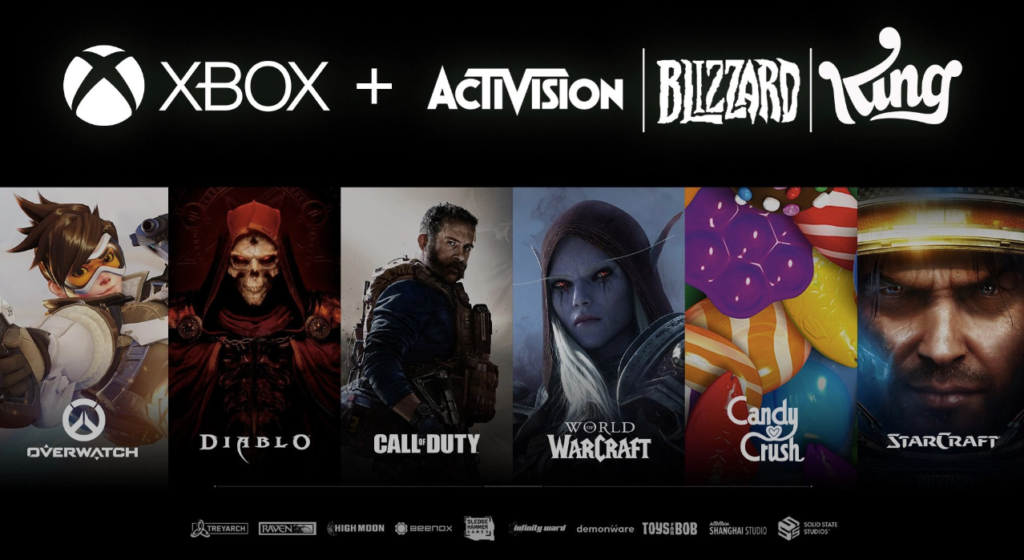|
Getting your Trinity Audio player ready...
|
The Competition and Markets Authority (CMA) of the United Kingdom has blocked Microsoft’s $69 billion acquisition of video game maker Activision Blizzard. The decision is based on concerns that the deal would stifle competition in the fast-growing cloud gaming market.
In its final report, the CMA stated that “the only effective remedy” to the substantial loss of competition “is to prohibit the merger.” The companies have announced their intention to appeal the decision.
The all-cash deal was opposed by rival Sony and was also being scrutinized by regulators in the U.S. and Europe over fears that it would give Microsoft control of popular game franchises like Call of Duty, World of Warcraft, and Candy Crush.
The CMA’s concerns were focused on how the deal would affect competition in cloud gaming, which involves streaming games to tablets, phones, and other devices. This frees players from the need to buy expensive consoles and gaming computers.
Martin Colman, chair of the Competition and Markets Authority’s independent expert panel investigating the deal said cloud gaming has the potential to change the industry by giving people more choice over how and where they play. He added, “This means that it is vital that we protect competition in this emerging and exciting market.”
Microsoft expressed its disappointment with the decision and signaled that it wasn’t ready to give up. “We remain fully committed to this acquisition and will appeal,” said President Brad Smith. He added that the watchdog’s decision “rejects a pragmatic path to address competition concerns” and discourages tech innovation and investment in the United Kingdom.
Activision also fired back, saying it would “work aggressively with Microsoft to reverse this on appeal.”
Regulators had dropped concerns last month that the deal would hurt console gaming, saying it wouldn’t benefit Microsoft to make Call of Duty exclusive to its Xbox console.
The CMA stated that it reviewed Microsoft’s proposals to ease competition concerns “in considerable depth” but found those solutions would require its oversight. Preventing the merger would allow cloud gaming to develop without intervention.
Microsoft already has a strong position in the cloud computing market, and regulators concluded that if the deal went through, it would reinforce the company’s advantage by giving it control of key game titles.
The CMA’s decision is a significant setback for Microsoft, which had hoped to expand its gaming portfolio through the acquisition of Activision Blizzard. The deal would have given Microsoft control of several of the world’s most popular video game franchises, including Call of Duty, World of Warcraft, and Candy Crush.
The U.K. watchdog’s decision is also likely to influence the ongoing regulatory scrutiny of the deal in the U.S. and Europe. The U.S. Department of Justice and the European Commission are currently reviewing the deal for potential antitrust violations.
The CMA’s decision is a victory for Sony, which had argued that the deal would give Microsoft an unfair advantage in the gaming market. Sony is Microsoft’s main competitor in the console gaming market and has been expanding its presence in cloud gaming.
The CMA’s decision reflects a broader trend of increasing scrutiny of tech mergers and acquisitions by regulators around the world. As digital technologies continue to reshape industries, regulators are becoming more concerned about the impact of large tech companies on competition, innovation, and consumer welfare.
The CMA’s decision is also likely to have implications for other tech companies seeking to expand through acquisitions. Companies like Facebook, Google, and Amazon have faced similar scrutiny in recent years as they have sought to acquire smaller companies in order to expand their market power.
In the case of Microsoft and Activision Blizzard, it remains to be seen whether the companies will be successful in their appeal of the CMA’s decision. If the deal is ultimately blocked, it will be a significant blow to Microsoft’s gaming ambitions and a reminder that even the biggest tech companies are not immune to regulatory scrutiny.
